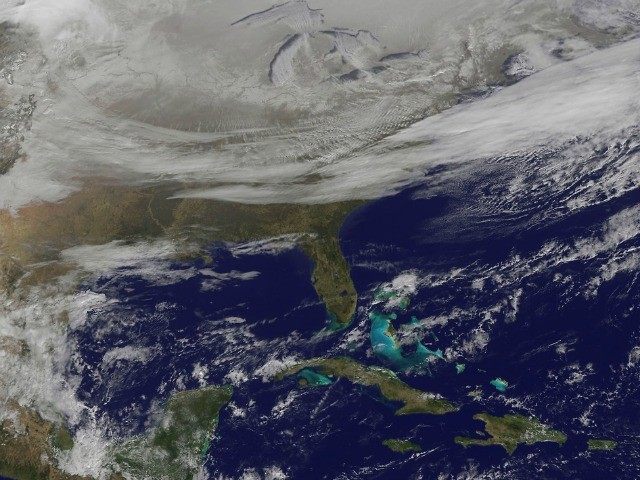Temperature readings from the Arctic and Antarctic used to estimate the effects of global warming are nothing more than guesswork, a climate researcher has said. Dr Benny Peiser heads up the Global Warming Policy Foundation, which last month announced its intention to launch a wide-ranging review of the data underpinning claims on global warming.
The review was launched primarily in response to interested parties flagging up major discrepancies between data gathered from weather stations, which marked 2014 out as the hottest year on record, and data gathered from satellites, which showed no warming for over 18 years. The scale of the discrepancy lead to accusations that weather station data had been “adjusted”, thereby exaggerating the effects of global warming, something which the Foundation is keen to investigate.
The review panel, headed by Professor Terence Kealey, the former vice-chancellor of the University of Buckingham, will be taking submissions for evidence until the 30th June, but Dr Peiser has said that questions and concerns have already been raised about how the discrepancy could have come about.
“There’s a lack of clarity, a lack of transparency and a growing concern about what is going on,” he told the Express. “Given these concerns, we thought there must be a better way of answering these questions.
“This is not about anthropogenic or man-made climate change, this is about whether the gatekeepers of the data, the meteorological agencies, are providing reliable information.”
Dr Peiser raised concerns that some researchers who contribute to the temperature records have been outspoken in their views on climate change, saying: “People ask why they are the gatekeepers of the data if they have such strong opinions. Should they really be the guardians of data quality and high standards?
“As in every scientific venture, there should be quality checks just to make sure people know exactly what is happening. In a way, this inquiry is a quality control exercise.”
Inevitably, some of those whose careers depend on global warming have hit back, accusing Dr Peiser and the research panel team of conducting nothing more than a “political stunt”.
Bob Ward, policy and communications director at the Grantham Research Institute on Climate Change and the Environment at London School of Economics and Political Science, admitted that some temperature records had been altered, but argued that the changes were insignificant.
“The adjustments make no significant difference to the obvious upward trend in global average temperature over the last century,” he said.
“The Foundation is a political lobby group, and funded by secret donors, not a transparent scientific organisation.
“I suspect that it simply wants to manufacture doubt about the temperature records to create a distraction while countries are negotiating a new international treaty to cut greenhouse gas emissions, to be agreed at a summit in Paris at the end of this year.”
Ward insisted that the alterations were legitimate as they were monitored by outside bodies, amongst them Britain’s Met Office. But the Met Office has itself been unequivocal in its support for the belief that human activity is driving catastrophic climate change.
On its website, the Met Office states: “There’s overwhelming and growing evidence that the warming is due to vastly increased – and still increasing – quantities of greenhouse gas in the atmosphere.”
On another page, entitled “Impacts of Climate Change”, the Met Office states: “Higher temperatures, fresh water shortages, higher sea levels and extreme weather events will each affect regions differently.
“The planet faces a range of scenarios depending on the level of continuing greenhouse gas emissions. Some change is inevitable but the extent and severity of long-term climate disruption depends on future emissions.”
Threats to food security, poverty and “disasters” are all listed as likely outcomes of climate change.
Data adjustments are not the only issue raised so far by the review. Dr Peiser also highlighted the practice of “infilling” data where a lack of weather stations means no real world readings are being taken. Without gathering real world data, these data points are nothing more than guesswork.
And he said there were problems both with the siting of weather stations, and with differences arising between technologies.
“In some areas there are hardly any weather stations so [the figures] have to be filled in, so they [meteorological agencies] kind of estimate. Particularly in the Arctic and Antarctic, there are very few weather stations so you have to make a lot of infilling.
“Then there are other problems. Obviously you have to adjust temperatures for growing cities and so therefore this will have an effect on local temperatures.
“Different technologies will also produce different readings, simply because the technology has changed and you have to take that into account.
“But all these adjustments, you would expect, should balance each other out. So you should expect that some of the adjustments will reduce the temperatures and some adjustments will make them warmer.
“The panel will look at whether the adjustments are all going in one direction or are they all balanced.”
Accompanying Professor Kealey on the panel are Petr Chylek, Richard McNider, Roman Mureika, Roger A Pielke Sr and William van Wijngaarden, all of whom are associated with North American universities. Their findings are expected to be released later this year.

COMMENTS
Please let us know if you're having issues with commenting.